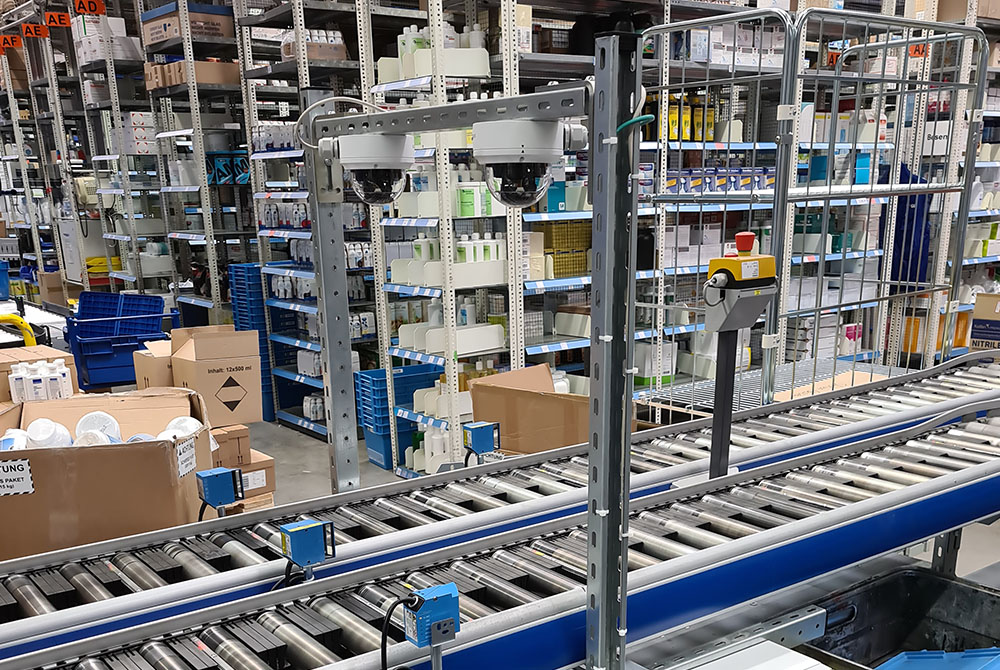Warehouse for Pharmaceuticals and Healthcare in Kenya
Pharmaceuticals are crucial for the healthcare system. They are used to prevent diseases, treat illnesses, and provide relief for pain. As a result, the pharmaceutical industry has grown exponentially in recent years. The first half of 2017 alone saw 37.1 billion dollars worth of revenue from the industry. Maintaining safe storage conditions is crucial to keep people safe from contamination or theft. This is why it’s important to find a warehouse that can accommodate your needs. Here are some tips on how you can find the right warehouse for your company’s pharmaceutical needs.
Finding a Pharmaceutical Warehouse
Finding a warehouse can be a daunting task. There are many different warehouses to choose from, including industrial warehouses and self-storage facilities. In addition to the type of storage facility you want, you’ll also need to answer other questions, like what size you need and how your products will be shipped there. For example, if you’re shipping in bulk containers, then an industrial warehouse may be your best bet. If you’re shipping in smaller quantities or in boxes that won’t fit in industrial warehouses, then a self-storage facility may work better for you.
To find the right pharmaceutical warehouse for your company’s needs, check out our blog post on how to select one for your company’s needs!
Why It’s Important to Keep Supplies Safe
In the pharmaceutical industry, there are regulations that must be met. These regulations keep people safe from contamination or theft of their medications. One of the regulations is that a pharmacy must have a warehouse that can safely store supplies.
Supplies for prescriptions and over-the-counter medication must be kept in a temperature controlled environment to protect against spoilage. If your warehouse is not temperature controlled, then you’ll need to find another facility that will meet the requirements. This includes warehouses with vaults, refrigerated units, specific humidity levels, and more.
Your company’s pharmaceutical needs will vary depending on what kind of products you sell. However, if you sell prescription medications or antibiotics, it’s important to find a warehouse that meets FDA standards for drug storage. There are three different types of warehouses:
* Units with controlled temperature zones for storing drugs at appropriate temperatures
* Units with controlled humidity levels for storing drugs at appropriate temperatures
* Units without temperature or humidity control but are only accessible by staff through secure access points
What to Consider When Choosing a Warehouse
When deciding on a warehouse for pharmaceuticals, there are many factors to consider. Here are some of the most important:
1. Climate Control
The warehouse should have humidity and temperature control. This is because pharmaceuticals require low humidity and specific temperatures in order to prevent contamination or deterioration. It
Storage Capacity
When it comes to warehouse facilities, the more space you have, the better. You need enough space for both your inventory and the staff that will be working there. The amount of space that you’ll need will depend on how much product you have and how many staff members you employ.
Security and Surveillance
A warehouse for pharmaceuticals should have a high level of security. This means the warehouse should employ a number of measures to keep people safe from theft and other potential dangers. For example, security cameras can be installed to monitor areas that need extra protection. These cameras can then be monitored from a central location so that all locations are being watched. In addition, many warehouses will have guards on site who can patrol the property to detect any suspicious activity.
Climate Control and HVAC Systems
Climate control and HVAC systems are important for keeping pharmaceuticals at their optimal temperatures. It’s crucial to maintain the right storage conditions so the pharmaceuticals don’t spoil or become contaminated. If you can’t meet these standards, then your pharmaceuticals could go bad and pose a risk to public safety.
Some warehouses have climate controlled units that can be customized for each company’s needs. The units should be equipped with an air-conditioning system as well as a humidification system. You can also find warehouses that are specialized in storing specific drugs that require different storage conditions due to their sensitivity to certain temperatures or humidity levels.
Packaging and Shipping
– Packaging is an important part of storing pharmaceuticals. You need to make sure that the packaging is both comfortable and ergonomic for the user, as well as airtight. This will help protect the medication from contamination or damage. Additionally, it’s important to use a shipping method that provides the most protection. You want to make sure that your product arrives in one piece and doesn’t get damaged during transit.
Conclusion
Choosing the right pharmaceutical warehouse is essential to your business. A good warehouse will ensure your goods are safe and secure, they will follow health and safety regulations, they will be able to provide you with the best value for your money, and they will be able to offer you a range of different services.
The right warehouse can be just the thing your business needs for success.








LEAVE A COMMENT
You must be logged in to post a comment.